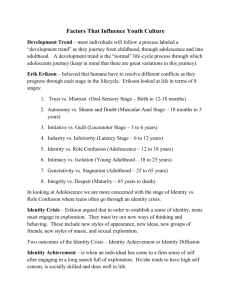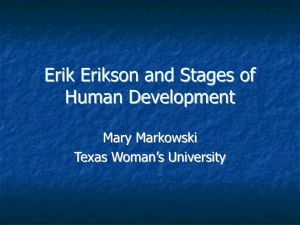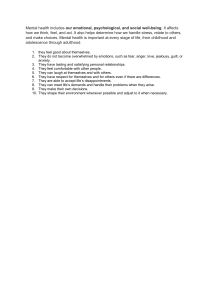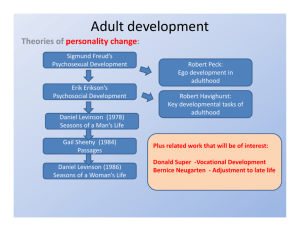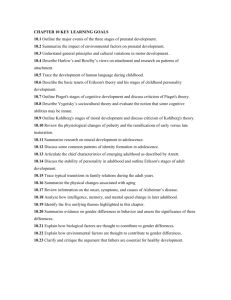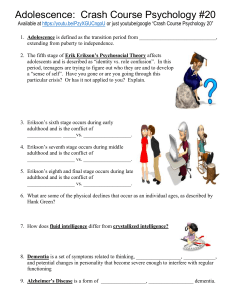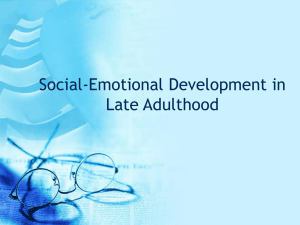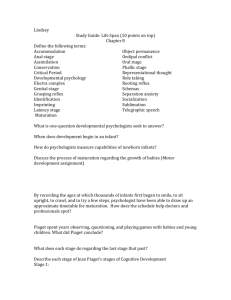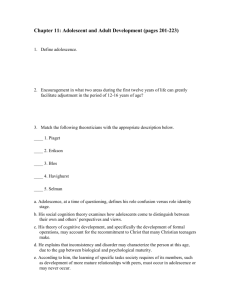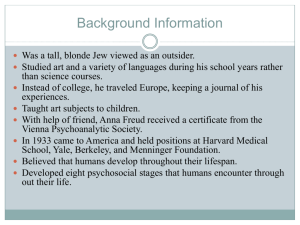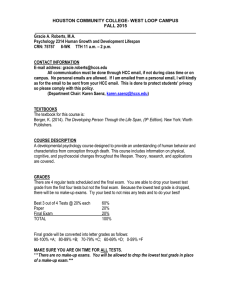Developmental Theories - School District of Clayton
advertisement
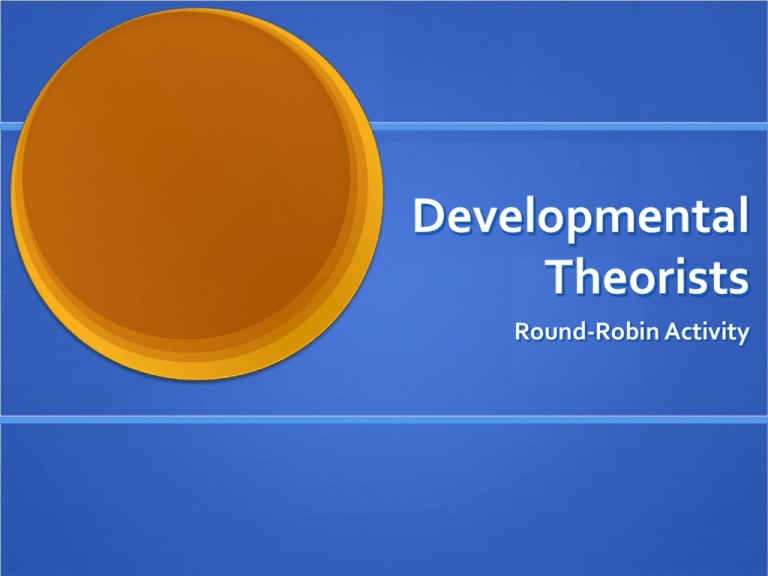
Developmental Theorists Round-Robin Activity Developmental Theories Be able to answer the following: What is the name of your theorist? Was this person best known for research about the social/emotional, intellectual, or physical development of children? Briefly explain this person’s development theory. Travel to a neighbor and teach them about the theory Abraham Maslow 1908-1970 His theory states: Erik Erikson 1902 - 1994 His theory states: Eight Stages of Development 1- Infancy: Birth to 18 months Trust vs. Mistrust 2- Early Childhood: 18 months to 3 years Autonomy vs. Shame 3- Play Age: 3 to 5 years Initiative vs. Guilt 4- School Age: 6 to 12 years Industry vs. Inferiority 5- Adolescence: 12 to 18 years Identity vs. Role Confusion 6-Young Adulthood: 18 to 35 Intimacy and Solidarity vs. Isolation 7- Middle Adulthood: 35 to 55/65 Generativity vs. Self Absorption 8- Late Adulthood: 55/65 to Death Integrity vs. Despair Visit for more info! http://www.learningplaceonline.com/stages/organi ze/Erikson.htm Sigmund Freud 1856 - 1939 His theory states: Define the following and give an example of how they work together. Id – Driven by the pleasure principle which strives for immediate gratification of all desires, wants, and needs. EX: an increase in hunger or thirst should produce an immediate attempt to eat or drink Ego – Functions in both conscious, preconscious, and unconscious Operates on the reality principle which strives to satisfy the id’s desires in realistic and socially appropriate ways. Discharges tension Superego Provides guidelines for making judgments The Ego Ideal: Includes rules and standards of good behavior The Conscience includes information about things that are viewed as bad by parents and society. Jean Piaget 1896 - 1980 His theory states: Stages of Development 1. Sensorimotor (birth-2 years) 1. Learns about himself and his environment through motor and reflex actions. 2. Preoperational (when child starts talking to age 7) 1. Applies new knowledge of language. Uses symbols to represent objects. Cannot conceptualize time. Thinking is influenced by fantasy. 3. Concrete (1st grade to early adolescence) 1. Accommodation increases. Can think abstractly and make rational judgments. 4. Formal Operational (adolescence) 1. Brings cognition to its final form. Hypothetical and deductive reasoning.
